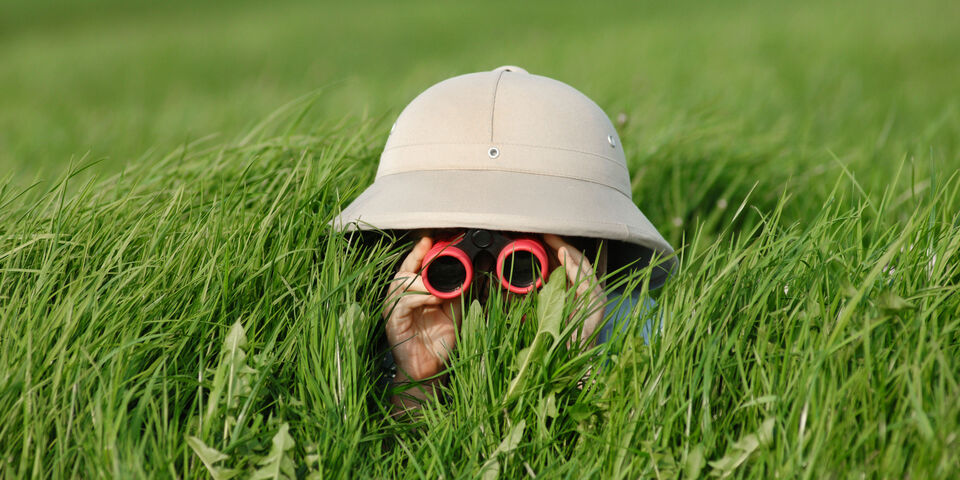Extra invigilators to guard fire detectors
Profielen, the independent news platform of Rotterdam University of Applied Sciences, reports that the fire detectors at exam location Kralingse Zoom were guarded during exams last Friday. The university decided to hire extra invigilators because there were many false fire alarms during exams at that location last year.
Profielen spoke to invigilator Ton, who spent last Friday in a practically empty hallway from nine in the morning till five in the afternoon, keeping an eye on the fire detectors near the copy machine. “It’s not so bad, I expected it to be quieter. Many teachers come up to me for a talk, and they regularly bring me coffee and tea.” The University of Applied Sciences has taken more measures to prevent false fire alarms from going off. These include sanctions with a (more) deterring effect, and raising more awareness of the seriousness of the offence. In addition, there are plans to install cameras.
Students from Delft came up with device that needs to limit cellphone use
Students Tim Smits and Jorn Rigter from TU Delft developed Unpluq. This ‘physical barrier to digital distraction’ needs to help cure people’s cellphone addiction, according to a report by Delta, TU Delft’s journalistic platform. The software developed by the students allows users to set their phones to Unpluq mode. When Tim shows his phone in this mode, you only see nine apps, all in greyscale. Furthermore, all app notifications are blocked. Users who want to make the apps visible again and receive an overview of the notifications they’ve missed, need to plug in an Unpluq key. Smits and Rigter plan to deliver the first Unpluq keys in September, which gives them a couple of months to finetune their product.
Students win a year tuition fee with ‘potato fish’
Nicolas Curubeto (27) from Argentina, Master student Food Technology at Wageningen University, won the Avebe Student Challenge in collaboration with two students from Hanze University of Applied Sciences Groningen, according to an online report from Resource, Cursor’s counterpart in Wageningen. Their assignment was to design the potato plant of the future. More concrete: they had to come up with a plan to make the potato plant more sustainable, and with ways to fully valorize the potato’s ingredients.
Avebe already produces potato protein. Curubeto’s group looked into potato science and came up with ways to improve protein extraction from potatoes. In addition, they found new possibilities for extracting healthy fats (omega 3 and 6) and amino acids, which can be used as flavor enhancers or food supplements, from potatoes. When the students combined their findings, they came up with a new product: the potato fish. All team members received a year tuition fee, worth 2083 euros. Curubeto will send the prize money to his family in Argentina, to thank them for their support and for allowing him to study in Wageningen.
Wanted: students who take tiny amounts of psychedelic drugs
Much is unknown about the long-term effects of psychedelic drugs. Ioana Pop, sociologist at Tilburg University, wants to change this – according to a report by Univers. She is looking for students who are willing to share their experiences with microdosing these drugs.
Microdosing usually comes down to taking one tenth of the normal dosage of a psychedelic drug, the effects of which can still be felt the next day. After a break of two to three days, the routine starts again.
In her search for more information, Pop came across research about students who self-medicate in order to cope with the pressure of student life and exams.
To gain more insight into the side-effects, Ioana Pop is looking for students who have experience with microdosing. In the article, she says that she wants answers to questions such as ‘how do these drugs actually work? How do they affect the brain and our emotions? How do they influence our daily routine? Are the effects reported by users real or placebo?’ She also wants to know whether the increasing popularity of microdosing is related to the increased pressure to perform that many students experience.
Secretly kissing where your housemates can’t see you?
Romantic relationships in a student house can often cause quite a lot of stress – especially when they come to an end. But when the relationship is a loving and healthy one, it can sometimes increase the sense of homeliness. A fascinating article (in Dutch) on the site of DUB (University of Utrecht) – with a few personal stories.


Discussion